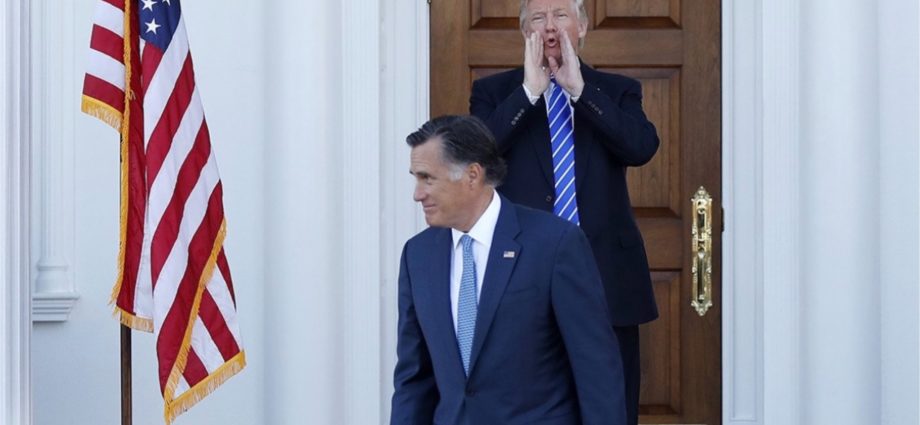Utah Senator Mitt Romney (R), unhappy with the firing of National Security Advisor John Bolton, has told reporters that he refuses to endorse any candidate for the primary or general election for the 2020 presidential campaign.
CNN reports that he said this on Thursday:
“I’m not planning on endorsing in the presidential race. At this stage, I’m not planning on endorsing in the primary or in the general.”
This continues the nasty feud that has gone on for a while between Romney and Trump, even after receiving an endorsement for his run as U.S. Senator. Romney quickly punished that good deed with a scathing op-ed of President Trump, insulting and criticizing him for differences and disagreements. President Trump at one point was considering the twice-failed presidential candidate for the job of secretary of state, although it never manifested. Some may wonder if it was ever a serious consideration.
President Trump issued scathing rebuked of Romney himself, blaming him for ‘choking’ when he lost the presidential bid against Barack Obama in 2012. You can see this highlighted in a 2016 tweet from @realDonaldTrump below:
Mitt Romney had his chance to beat a failed president but he choked like a dog. Now he calls me racist-but I am least racist person there is
— Donald J. Trump (@realDonaldTrump) June 11, 2016
This lack of an endorsement from Senator Romney probably doesn’t come as a huge surprise to many, especially considering Mitt is friends with long-shot presidential candidate and Libertarian Bill Weld. It doesn’t appear that President Trump has responded yet to this non-endorsement, but won’t be a big surprise if he does.
In a surprising turn of events though, Romney actually praised President Trump as reported today in Politico for not cutting capital gains tax, further muddying the waters into the complex relationship between Romney and Trump. Politico reported:
Romney said the president made the correct decision because “regardless of the merits of this policy change, it would be counterproductive to proceed in a way that creates uncertainty for American families and businesses.” Like most Republicans, Romney said Trump should come to Congress if he wants to change tax law rather than through administrative action.

